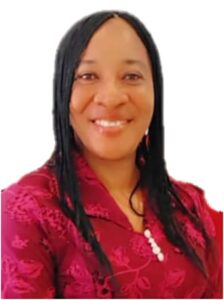Notes:
- The congress is hybrid: face-to-face it is held at the Campus of the University of Alicante; online it is held asynchronously and by live videostreaming the face-to-face congress according to its schedule.
- The face-to-face contributions have a timetable for their presentation that will be communicated in advance to the authors.
- Authors can present their work in Spanish, English or Catalan (Valencian).
- Online contributions do not have a fixed timetable; authors send us a video and this can be viewed throughout the conference. Communication between authors and attendees takes place through forums and question forms.
- A more detailed preliminary programme will be posted once the review process is underway.
30 October 2025
Congress (physical format)
Place: Sala Multimedia. Edificio Rectorado-University of Alicante Campus:
- From 9:30 hs. (CET) onwards: Congress registration
- 10:00 hs. – 10:15 hs.:
- Inaugural session
- Prof. Amparo Navarro, Rector University of Alicante
- Prof. Rosabel Roig-Vila, co-director of ICEAI 2025.
- Inaugural session
- 10:15 hs.-11:00 hs.
- El boom de la IA Educativa: ¿de la euforia a la saturación?, Juan Francisco Álvarez-Herrero (University of Alicante)
- 11:00 hs.-11:30 hs.: Coffee Break
- 11:30 hs.-13:00 hs.: Communications Session
- Literatura, educación e inteligencia artificial: avances didácticos de la IAGen para la educación literaria, José Rovira-Collado & Sebastián Miras (University of Alicante)
- Repensando la máquina de enseñar: una experiencia con Chat-GPT para crear recursos y abordar el condicionamiento operante en una clase universitaria de Ciencias de la Educación, Facundo Dyszel (University of Buenos Aires)
- Incorporación de la IA generativa en el aula de AICLE, Copelia Mateo Guillén, Javier Fernández Molina, Verónica Cortés González & José Rovira-Collado (University of Alicante)
- West African migrant learners’, in maze of digital funds of knowledge: and AI-supported bilingualism in Catalan and African heritage languages in Catalonia, Adetola Elizabeth Umoh (Autonomous University of Barcelona)
- Faculty perceptions and experiences of artificial intelligence in health sciences education: a comparative study at the Universidad de Chile and Universidad de Concepción, Juan Francisco Hernández (University of Barcelona – University of Chile), Carles Lindín Soriano, Lluis Parcerisa Marmi & Joan-Anton Sánchez i Valero (University of Barcelona)
- Personalised audio with AI for inclusive language education, María Soledad Villarrubia Zúñiga (University of Alicante), Maria Angelica Giordano Paredes (UNED), Lourdes Díaz Rodríguez (Universidad Pompeu Fabra) & Margarita Isabel Asensio Pastor (Universidad de Almería)
- Agentes educativos generativos: el uso de la IA para simular y comprender el comportamiento del estudiante, Alberto López Sellers, Luis Márquez-Carpintero & Miguel Cazorla (University of Alicante)
Congress (virtual format)
Online access to the contents of the Congress (Proceedings, contributions, etc.) for all participants (face-to-face and virtual).
- Plenary Conference: Augmented Pshysical Training and Cognitive Performance, Francesca Latino (University of Salento).
Each participant will previously receive an e-mail explaining how to access these contents.
- The controbutions of each participant are asynchronous. The videos and presentations of these participants can be viewed on the online platform.
- The plenary sessions (congress physical format) will be broadcast via streaming.
- The Congress forums will remain open for interaction.
- The contents will be available for consultation.
31 October 2025
Congress (physical format)
Place: Sala Multimedia. Edificio Rectorado-University of Alicante:
- From 9:30 hs. (CET) onwards: Congress registration
- 10:15 a.m. – 11:15 a.m.: Plenary Conference
- Evaluar con inteligencia: la IA como catalizadora del cambio en la enseñanza universitaria, Víctor González-Calatayud (University of Murcia)
- 11:15 hs.-11:45 hs.: Coffee Break
- 11:45 hs.-12:30 hs.: Communications Session
- Formación del profesorado en IA: clave para la promoción de la transformación digital, Imane Bakkali (Abdelmalek Essaâdi University)
- Análisis del comportamiento docente con IA generativa, Luis Márquez-Carpintero, Miguel Cazorla & Alberto López Sellers (University of Alicante)
- La inteligencia artificial como confidente y profesor: riesgos y desafíos en la adolescencia y en las aulas, Esther Vázquez Torrado (University of Valencia)
- Exploring the integration of artificial intelligence into teacher education through focus groups, Javier Fernández Molina & Copelia Mateo Guillén (University of Alicante)
- La inteligencia artificial en la formación inicial de profesionales de la educación: percepciones y usos del alumnado universitario, Víctor González-Calatayud, Nerea Gálvez Vilar, María Paz Prendes Espinosa (Universidad de Murcia)
- West African migrant families in Czech cities: in quest of preservation of mother tongue, cultural heritage, and religious identity, Samuel Uwem Umoh (Czech Academy of Sciences)
- 12:30 hs.-13:30 hs.: Plenary Conference
- Transforming university learning with Generative Artificial Intelligence: attitudes, perceptions and possibilities. Elena Carrión Candel & Ayose Lomba Pérez, Universidad del Atlántico Medio
- 13:30 hs.-13:45: Closing session of the congress
Congress (virtual format)
- Plenary session (will be broadcast via streaming):
-
Minds over AI: media and information literacy in digital spaces, Emmanuel Chidubem Asiegbu, Elizabeth Ifeoma Anierobi & Chinenye Blessing Amaonye (Nnamdi Azikiwe University)
-
- The contributions of each participant are asynchronous. The videos and presentations of these participants can be viewed on the online platform.
- The Congress forums will remain open for interaction.
- The contents will be available for consultation.
Prof. Dr. Juan Francisco Álvarez Herrero, Universidad de Alicante

Profesor Titular de la Universidad de Alicante. Posee el Máster universitario en dirección y gestión de centros educativos por la Universidad Católica de Valencia (UCV) y el título de Experto Universitario en Internet y sus Aplicaciones por la Universidad Nacional de Educación a Distancia (UNED).Doctor en Tecnología Educativa: e-learning y gestión del conocimiento por la Universitat Rovira i Virgili, con calificación Cum Laude. Miembro del grupo de investigación GIDU-EDUTIC/IN. Su trayectoria se centra en la innovación educativa y la integración de la tecnología digital en los procesos de enseñanza. Es autor y coordinador de cursos del INTEF sobre liderazgo educativo y competencias digitales, además de formador en CEFIREs y universidades nacionales e internacionales. Destaca su labor en la formación docente vinculada a entornos digitales e innovación pedagógica.
Prof. Dr. Chinenye Blessing Amaonye, Nnamdi Azikiwe University

Chinenye Blessing Amaonye is a distinguished scholar and educator with expertise in the Economics of Education at the Department of Educational Management and Policy, Nnamdi Azikiwe University, Awka. She serves as Advisor to the UNESCO Chair on Education, Research, and Digital Inclusion at the University of Alicante, Spain, and also acts as the Representative and Coordinator for the UNESCO Chair at Nnamdi Azikiwe University, Awka, Nigeria. Her leadership and research acumen have significantly contributed to advancing education, research, and digital inclusion. A respected figure in academic circles, Dr. Amaonye is a member of the editorial board of the National Association of Educational Administration and Planning (NAEAP), Nigeria, and has also served as a reviewer for several international journals. In addition, she serves as Chairperson of the Committee on International Collaboration and Grants, and as Secretary to the Committee on International Collaboration and Linkages, Faculty of Education, Nnamdi Azikiwe University, Nigeria.
Prof. Dra. Elena Carrión Candel, Universidad del Atlántico Medio

Doctora Cum Laude en Investigación en Artes y Humanidades, acreditada como Contratado Doctor con un Sexenio de Investigación. Es profesora, PDI y Coordinadora de la Mención en Música en la Facultad de Educación de la Universidad del Atlántico Medio, donde lidera como IP el grupo “Experiencias Lúdicas con Inteligencia Artificial y Tecnología Educativa” (ELITE). Posee formación en Historia y Ciencias de la Música, así como en Educación Primaria con Mención en música e inglés. Ha impartido docencia en los niveles de primaria, secundaria y universidad. Con más de 50 publicaciones, ha sido ponente destacada en diversos Congresos de innovación educativa. Su investigación se centra en las tecnologías digitales, inteligencia artificial y ODS aplicados al proceso de enseñanza-aprendizaje.
Prof. Emmanuel Chidubem Asiegbu, Nnamdi Azikiwe University

Emmanuel Chidubem Asiegbu is a Professor of Educational Planning at Nnamdi Azikiwe University, Awka, Anambra State. He has been teaching at the University for over 15 years, starting as a Graduate Assistant in 2010, and has successfully supervised more than 100 undergraduate and postgraduate projects. He has authored over 50 scholarly articles in both international and national journals, as well as several book chapters. His research focuses on gender issues in schools, conflict resolution practices, entrepreneurship education, education finance, quality assurance, and private sector participation in school management. His areas of specialization include Economics of Education, Educational Planning, and Educational Administration and Supervision. In terms of administrative roles, Prof. Asiegbu currently serves as Sub-Dean of the Faculty of Education, Nnamdi Azikiwe University, Awka, and as Secretary of the ACADA-NAU Multipurpose Cooperative Society Limited. He has previously served as Secretary and Coordinator of the Teaching Practice Exercise; Investment Secretary, ASUU-NAU Chapter; Investment Officer, ASUU-NAU Multipurpose Cooperative Society Limited; Editor-in-Chief of the UNIZIK Journal of Educational Management and Policy (UJOEMP); Deputy Director, Certificate and Diploma Programme; and Faculty of Education ICT Officer (2015 to date).
Prof. Dr. Víctor González, University of Murcia

Professor at the University of Murcia, specialising in Educational Technology. His teaching and research work focuses on the ethical, pedagogical and transformative use of artificial intelligence in education, exploring its impact on digital competence, methodological innovation and teacher training. He has coordinated various projects on the integration of AI in the classroom and the evaluation of its educational potential. He is currently Executive Director of the journal RIITE (Interuniversity Journal of Research in Educational Technology), from which he promotes scientific dissemination on technology and learning.
Prof. Dr. Elizabeth Ifeoma Anierobi, Nnamdi Azikiwe University, Nigeria

Dr. Elizabeth Ifeoma Anierobi is an Educational Psychologist and Lecturer in the Department of Educational Foundations, Faculty of Education, Nnamdi Azikiwe University, Awka. She is a member of prestigious professional associations such as the National Institute of Management (Chartered) and the Neo Cycle of Educational Psychologists. She is also a Fellow of the Ife Institute of Advanced Studies. Dr. Anierobi has attended and presented papers at numerous conferences and has served on various university committees. In addition, she has worked as a reviewer and editor for several academic journals. She has authored and co-authored book chapters as well as numerous papers published in both national and international journals. Dr. Anierobi has successfully supervised many undergraduate and postgraduate students. She remains open to research collaborations.
Prof. Francesca Latino, University of Salento

Author of several publications on the methodology of teaching and learning in physical education across different age groups, published in both national and international journals. Her research primarily focuses on the promotion of pedagogical interventions aimed at enhancing learning, preventing sedentary behavior, and fostering the acquisition of motor competences. She is also particularly interested in inclusive methodologies and in the analysis of diverse educational systems with respect to students’ education. She earned her Ph.D. in Clinical and Pathological Morphology from the University of Naples Federico II in 2014. Her scientific work further explores the role of exercise and physical activity in improving physical function and cognitive abilities, as well as the relationship between school-based physical activity and academic performance.
Prof. Ayose Lomba Pérez, Universidad del Atlántico Medio

Ingeniero industrial, docente universitario y doctorando en el Programa de Empresa, Internet y Tecnologías de la Comunicación de la ULPGC. Director de la Escuela de Ingeniería en Sistemas de Información de la Universidad del Atlántico Medio, centra su investigación en la aplicación de la IA, la gamificación y los videojuegos a la educación. Es autor y coautor de publicaciones científicas sobre perfiles de jugadores en el aula y contribuciones sobre IA y Objetivos de Desarrollo Sostenible en Congresos Internacionales.